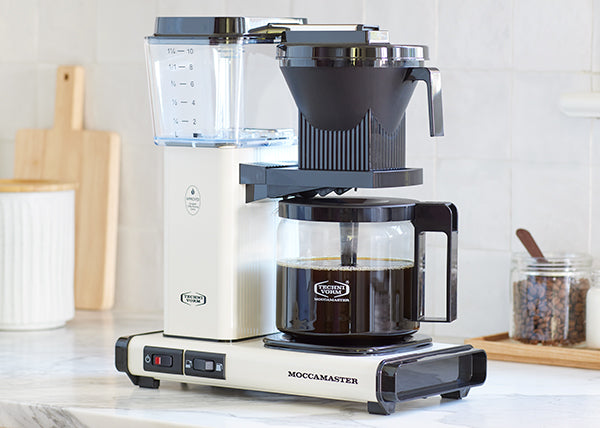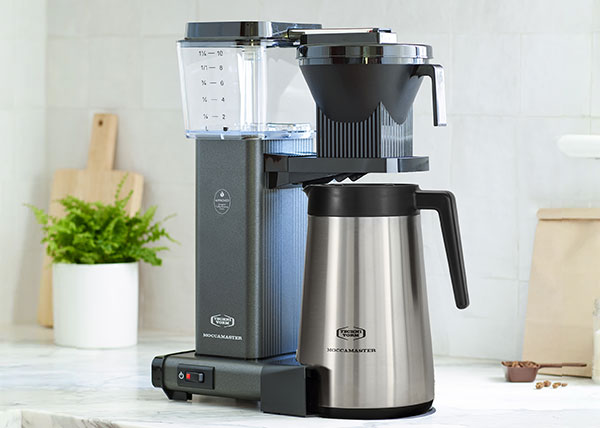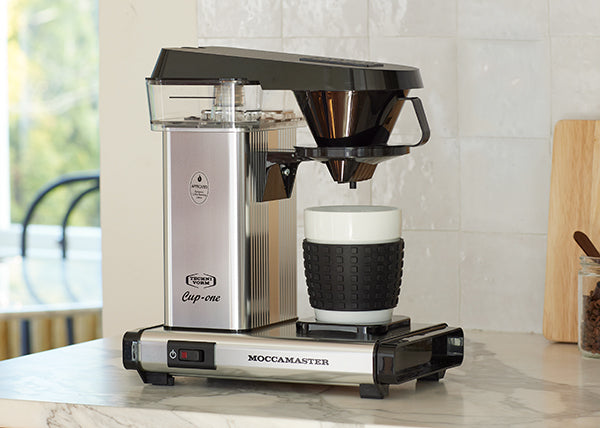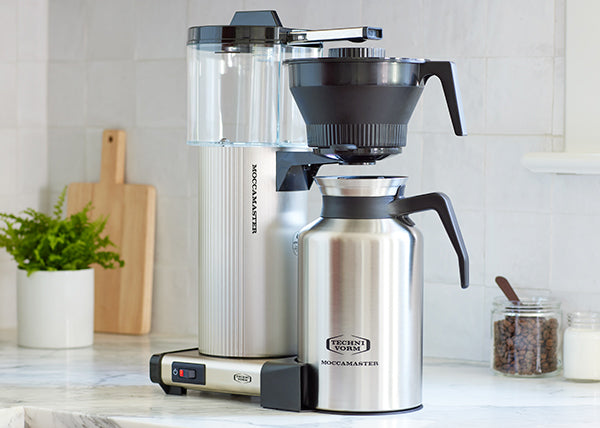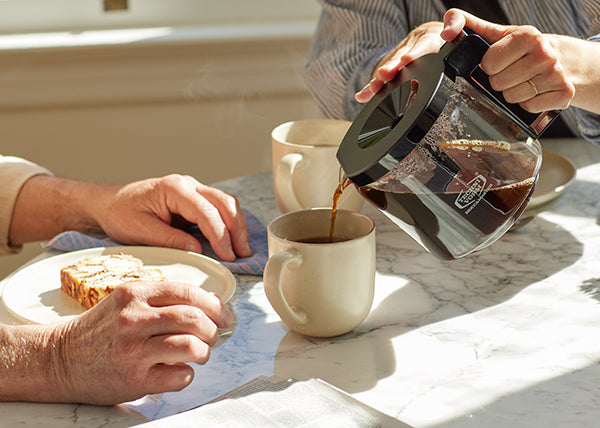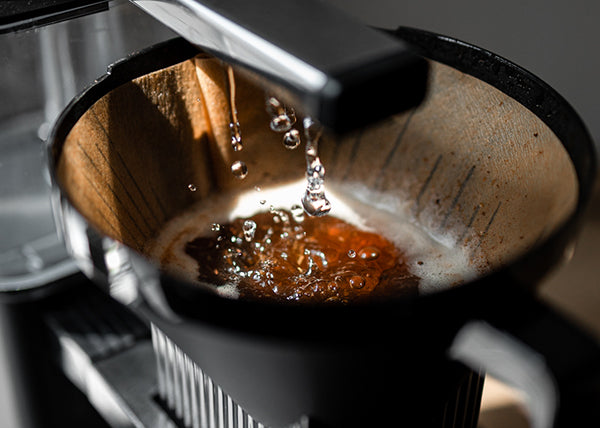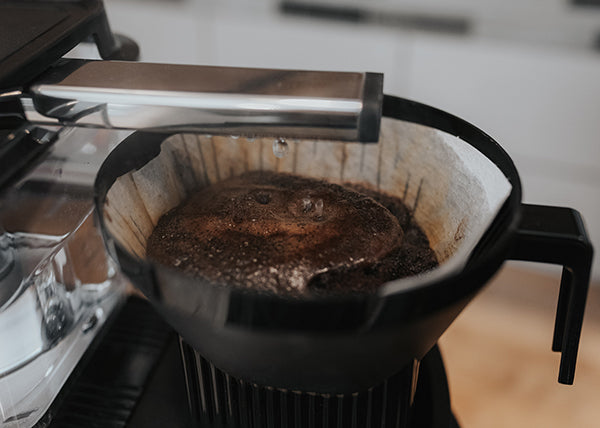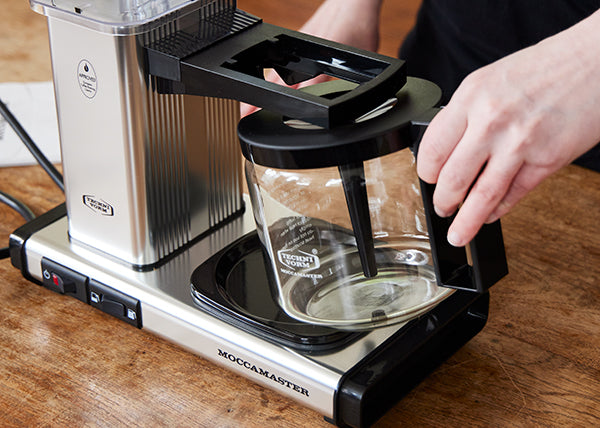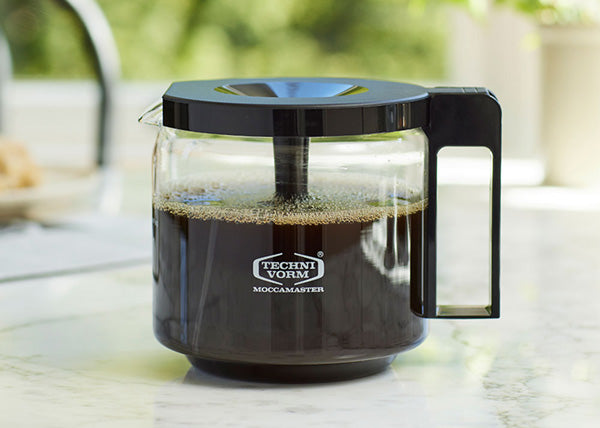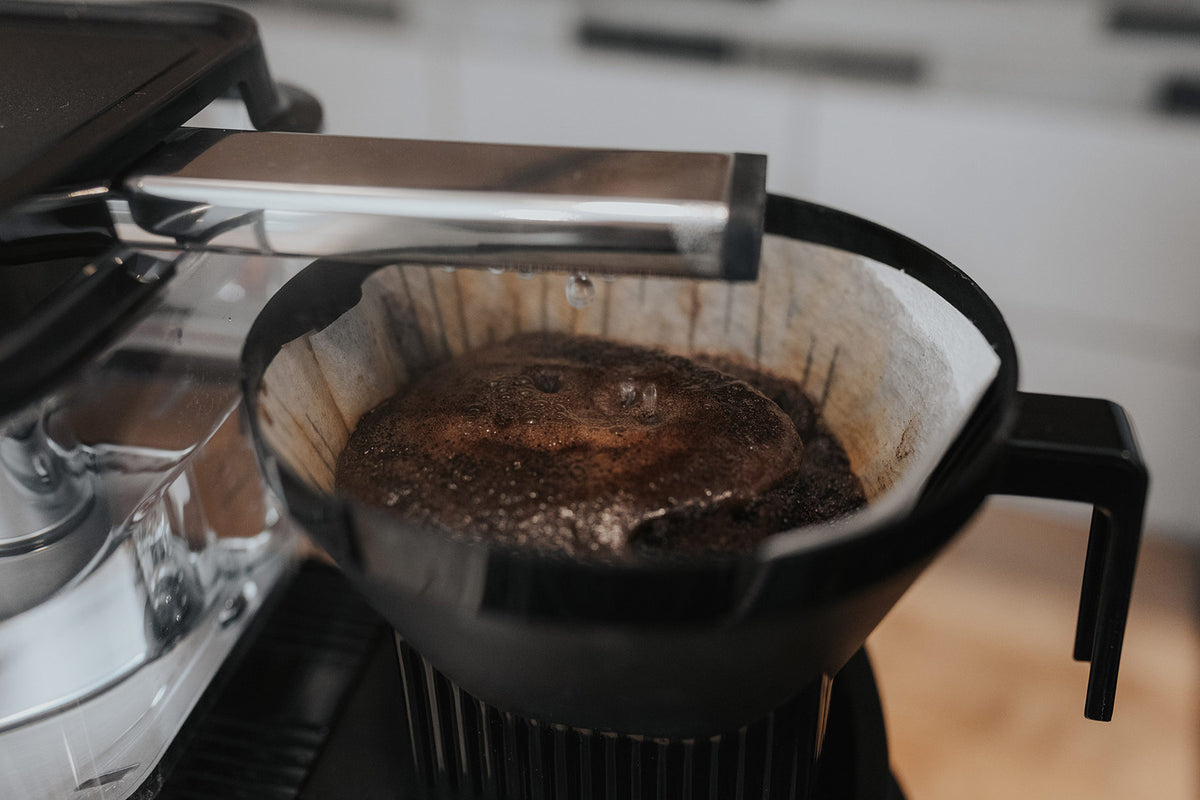Moccamaster coffee brewers are a filtered, pour-over coffee brewer. What's the purpose of a filter when it comes to coffee brewing, and what are the differences in coffee filters? You might be surprised by some of the nuances of this small but mighty component of your morning routine!
1. Why Filter Coffee?
A coffee filter removes a significant amount of coffee oils from your brewed coffee. When using a full immersion process such as a French press, more oils remain. The result is a very different flavor profile but also a potentially unhealthy cup of coffee. Excessive consumption of the coffee oils Cafestol and Kahweol have been associated with higher cholesterol levels. When a coffee filter absorbs those excess coffee oils, the resulting taste is cleaner and brighter, and the coffee is healthier for you to consume.* Use our coffee grinding guide for the best results.
2. Cone or Flat Bottom Filters?
Filters come in cone-shaped and flat bottom varieties. A cone-shaped filter is best for pour-over brewing. The steep angle of the brew basket and filter gives the coffee bed enough depth for the water to properly saturate the grounds. For the size and capacity of a typical home coffee brewer, a flat bottom bed is too shallow for proper saturation and extraction. Our Grand series brewers are an exception - they have a 60 ounce capacity and use a flat bottom filter. To ensure the coffee bed is deep enough for perfectly extracted, ECBC-approved coffee, we recommend always brewing the total 60 ounce capacity on a CD Grand or CDT Grand.
3. Filter Materials
The filter you use can affect the flavor and outcome of your brewed coffee. We recommend oxygen whitened filters for the cleanest taste. These filters won't impart any flavor, so everything you taste in your cup is coffee.
Brown unbleached paper filters can leave a "cardboard" taste in your coffee, obscuring the flavor of the roasted coffee beans.
Reusable filters, typically made of metal or nylon mesh, don't absorb the coffee oils. These filters can be difficult to clean well, and coffee oil residue can build up quickly and clog the filter. A clogged filter can lead to improperly extracted coffee or an overflowing brew basket.
4. Filter Quality
The filters you use should be well-constructed, free of chemicals, and not alter your coffee's flavor. Moccamaster filters are whitened using a bleach-free, chlorine-free oxygenation process, and they are bonded together without any chemicals or glues. Their thick, sturdy paper allows for the real taste of coffee to shine through.
5. Environmentally Friendly
Both coffee grounds and Moccamaster coffee filters are entirely biodegradable and compostable. As most of the acidity is removed from the coffee grounds during the brewing process, used coffee grounds and filters are nearly pH neutral and rich in nitrogen - making them a great addition to the compost pile.
Pick up the filters you need below, or click here for our full collection of filters and cleaning products.
* References:


